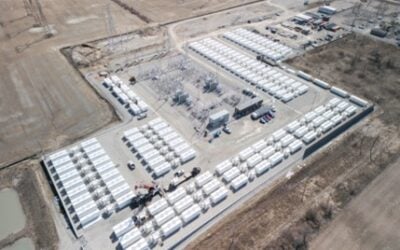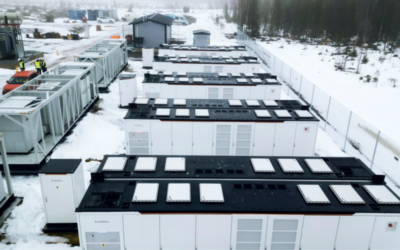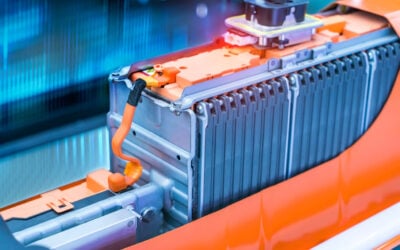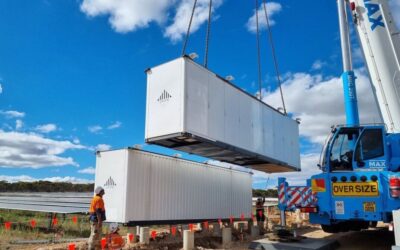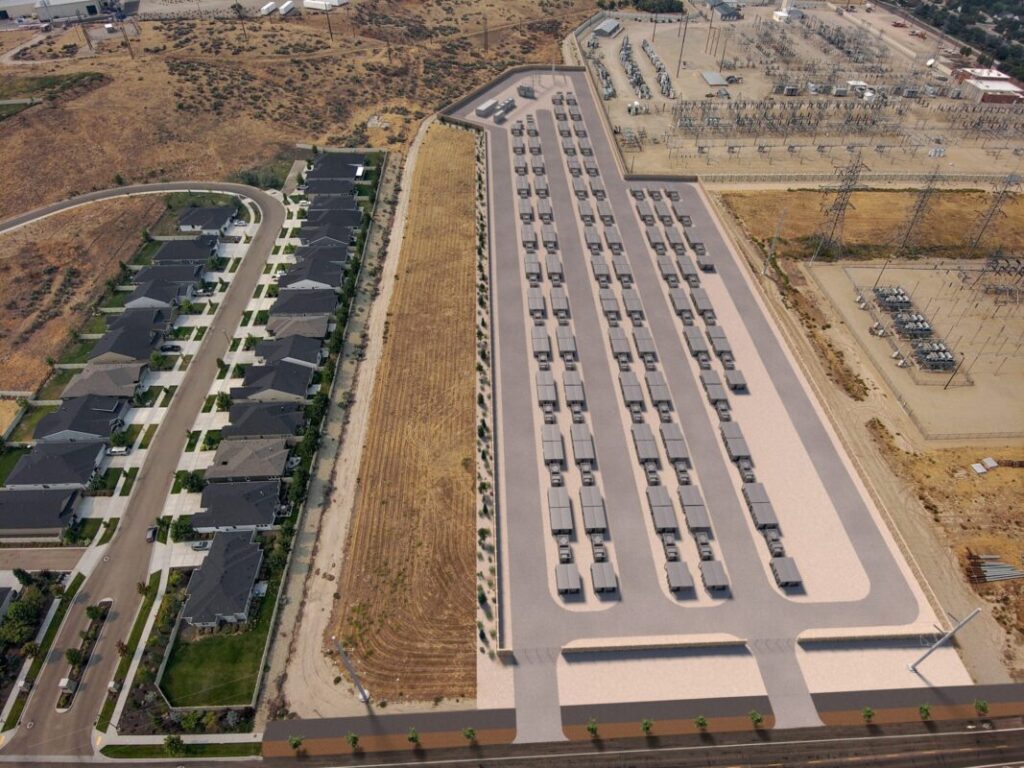
Idaho Power has overcome a huge hurdle facing its plan to deploy a 200MW/800MWh battery energy storage system (BESS) in the City of Boise by the end of next year.
Officials at the state’s capital city denied an appeal that threatened the future of the regulated investor-owned utility (IOU) company’s project.
Enjoy 12 months of exclusive analysis
- Regular insight and analysis of the industry’s biggest developments
- In-depth interviews with the industry’s leading figures
- Annual digital subscription to the PV Tech Power journal
- Discounts on Solar Media’s portfolio of events, in-person and virtual
Or continue reading this article for free
A public hearing was held to discuss the appeal against Idaho Power’s Boise Bench project at a regular City of Boise Council meeting held on 1 April 2025.
“The City of Boise’s approval of the Boise Bench Substation Battery Project’s permit is a key step toward this project’s success”, said Sven Berg, battery storage communications specialist at Idaho Power.
200MW lithium iron phosphate BESS
Idaho Power’s plans to add a 200MW/800MWh lithium iron phosphate (LFP) BESS at its Boise Bench substation are the result of an all-source request for proposals (RFP), issued last year by the utility to address a capacity deficit expected to occur next summer.
Although initially proposed as a 150MW facility, Idaho Power is currently seeking permission from the Idaho Public Utilities Commission (IPUC) to increase the size of the project by 50MW. This comes after an agreement with independent power producer (IPP) Savion fell through, as first reported by Energy-Storage.news in January.
To address next year’s expected deficit, Idaho Power was expecting to receive additional capacity from Savion’s Powers Butte Solar and Storage project located in Ada County, Idaho.
However, permitting for the project stalled towards the end of last year, leading to Savion informing Idaho Power that it would be unable to deliver the project by its contracted June 2026 online date.
Despite the IPUC not issuing its final decision on the expansion, Idaho Power has already secured a BESS supply agreement for the project with Prevalon Energy, the energy storage system integration subsidiary spin-out from Mitsubishi Power Americas.
CUP modification met with local opposition
In order to accommodate the incoming 200MW BESS, along with the accompanying substation expansion, Idaho Power submitted an application to the City’s Planning and Zoning (P&Z) seeking permission to amend a pre-existing conditional use permit (CUP) associated with the site.
Before making a decision on whether to approve Idaho Power’s modifications to its Boise Bench site, the P&Z commission held a public hearing on 3 February to deliberate the plans.
During the hearing, representatives for Idaho Power provided oral testimony on the project’s importance, which, according to Berg, will allow the utility to “meet peak demand, especially during summer and winter afternoons and nights … [with] enough capacity to power about 70,000 typical homes for four hours.”
Members of the public against the project also provided their views, speaking of the project’s perceived negative impacts, focusing on risks such as fire hazards, noise, and lack of site screening.
As all energy storage industry professionals will be well aware, members of the public raising concerns around the potential of BESS fires is nothing new, especially since the most recent fire at Vistra’s Moss Landing project in California.
However, it’s interesting to see anti-BESS proponents beginning to speak of potential noise pollution impacts caused by energy storage projects.
Although a relatively new phenomenon for the general public, it’s something battery storage manufacturers and system integrators, such as Finland’s Wärtsilä, have kept front and centre over the past few years when designing their new BESS offerings.
In a recent interview, applications engineer at Wärtsilä, Sharon Santhosh, told Energy-Storage.news about the importance of noise considerations when deploying BESS in built-up areas.
In response to concerns raised during the hearing by the public concerning the potential of BESS fires, the P&Z commission issued a request to the City’s fire department for further information before making its decision.
Boise Division Chief Fire Marshal, Mike Bisagno, attempted to alleviate the concerns of worried locals by detailing the “extensive fire codes and standards” which BESS units are subjected to, in a letter addressed to the city’s Senior Planner, David Moser.
“We will apply the most recent NFPA 855 standards and conduct an independent third-party technical review to ensure full compliance with all applicable fire codes and safety standards”, wrote Bisagno.
Following Bisagno’s letter, the P&Z commission approved the CUP modifications in a split 4-2 vote.
Appeal contesting decision lodged by Boise locals
After the P&Z commission issued its decision, a group of locals lodged an appeal with Boise City Council, requesting officials revoke the modified CUP on the grounds that a BESS did not align with “the goals and policy of the [city’s] comprehensive plan.”
The appellants also continued to raise concerns surrounding fire safety, along with the potential for disruptive noise and visual pollution caused by the project.
However, at the recommendation of the city’s planning team, coupled with the information provided by the fire department and Idaho Power, the City Council denied the appeal during the meeting held on 1 April 2025.
The denial signifies huge progress for Idaho Power, enabling the utility to “stay on schedule to bring the batteries online in time for summer 2026,” Berg said.
Idaho regulator wants no involvement in potential Western RTO
Although the majority of America’s energy grids are managed by independent system operators (ISOs) or Regional Transmission Organisations (RTOs), Idaho is one of the few states in the country where this responsibility falls upon utilities.
Idaho Power is one of three utilities taking on this role in Idaho, alongside Rocky Mountain Power and Avista.
Discussions have taken place in the past to develop an RTO for the Western US, that could include states such as Arizona, New Mexico, Washington and Idaho. However, during 2023, the IPUC stated that it wouldn’t be joining an initiative to lay the groundwork for a potential Western RTO.

